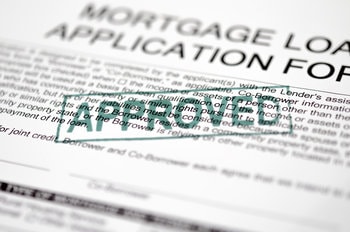 "Foreign national mortgages" are simply loans for non-US citizens. And, perhaps surprisingly, even loans guaranteed by the American government are available to residents of this country who aren't citizens.
"Foreign national mortgages" are simply loans for non-US citizens. And, perhaps surprisingly, even loans guaranteed by the American government are available to residents of this country who aren't citizens.
So the idea that only fully fledged Americans can get mortgages in this country is a complete myth. But some foreign national mortgages do come with special conditions. So do read on to discover more.
You can be foreign, but you must be legal
Let's make one thing clear; if you're here illegally, your chances of getting a mortgage legitimately are close to zero. That's because mainstream lenders routinely require ID. And those requirements include social security numbers plus green cards or visas or work permits that prove you have a right to remain.
Do some find ways around this? Perhaps, with private money or owner financing. But anything involving a mainstream lender would have to involve fraud. Get caught, and you'd likely be facing a prison term prior to automatic deportation.
Rules for resident foreigners
It's generally not hard to find a mortgage for non-US citizens. There are two main categories of legal resident foreigners:
- Permanent residents -- With green cards and long-term residency rights
- Nonpermanent residents -- Your residency rights are typically dependent on your employment. And you should have an employment authorization document (aka work permit) or a special visa sponsored by your employer. You may have a different sort of nonwork visa if you're very rich
If you fall into either category, you're likely eligible for a mortgage. But you may face more obstacles if you're in the second.
Related: Building a Second Home From Overseas
Permanent vs non-permanent
If your residency entitlement is not permanent, expect to have to show you're probably going to be able to remain for at least three more years. And, if your work permit or visa has less than 12 months to run, your lender is obliged to investigate the likelihood of your getting to stay.
The lender guide at Fannie Mae says "Fannie Mae purchases and securitizes mortgages made to non-U.S. citizens who are lawful permanent or non-permanent residents of the United States under the same terms that are available to U.S. citizens."
"Fannie Mae does not specify the precise documentation the lender must obtain to verify that a non-U.S. citizen borrower is legally present in the United States. The lender must make a determination of the non-U.S. citizen’s status based on the circumstances of the individual case, using documentation it deems appropriate."
Starting in May 2025, the FHA will no longer insure mortgages made to non-permanent residents.
Refugees and those granted asylum
If you've been officially given refugee status or have been granted asylum, the news is good. You automatically have a right to work. And your chances of getting a mortgage are the same as everyone else's.
Of course, you're going to have to provide your immigration paperwork. And lenders will likely audit it.
Credit scores an issue for many
You might assume your hard-earned credit score that you built up in your homeland would seamlessly transfer to the US. But no. Even though America's big-three credit bureaus (Equifax, Experian and TransUnion) all have subsidiaries in the countries -- except China -- where most foreign buyers live, your score in your homeland counts for little.
Unless you've been here for several years, your US score is likely to be too low for many mortgage lenders. That's not because you're necessarily a bad risk. It's simply because you haven't borrowed often enough for long enough to build up a solid history. You have what the credit industry calls a "thin file."
However, most programs from Fannie Mae and Freddie Mac allow manual underwriting and non-traditional credit reports. These consider your rent payments, utilities and other expenses. Note that most programs require higher minimum down payments when the underwriting is manual.
Fannie Mae's seller guide says "If a non-U.S. citizen or foreign borrower lacks sufficient credit references in the United States to satisfy Fannie Mae requirements, the lender must use credit references from foreign countries to achieve the required number of nontraditional credit references and establish a nontraditional credit profile." It further notes that " If the lender relies on credit reports from foreign countries to document borrower credit histories, the credit report must meet the requirements and standards for domestic reports,
Related: International buyers returning to U.S. housing market
Non-resident foreign buyers
Even those with no right to reside in America may be eligible for a mortgage for non-US citizens. But they're hit particularly hard by that credit score issue. And lenders might worry about how they'd enforce a debt when you live in a foreign jurisdiction. Worse, you're not eligible for mortgages backed by Fannie Mae or Freddie Mac, nor those guaranteed by the government (FHA, VA and USDA loans), if you don't have an American social security number.
So don't expect the sorts of deals citizens and residents typically get. Chances are, you're going to need a down payment of 30%-50% of the purchase price. And your mortgage rate will be noticeably higher than a resident would pay.
Related: Can I get a mortgage without a Social Security Number?
Welcome to America
The United States was founded by immigrants. And it has a proud history of welcoming them. So there's little new here.
Lenders make lending decisions and determine mortgage deals on the basis of risk: your creditworthiness, the size of your down payment, your financial resources and the amount you owe on other debts. When it comes to determining those deals, you're likely to be on a level playing field, regardless of your citizenship status -- providing you're living here legally.
This article was revised by Keith Gumbinger.



